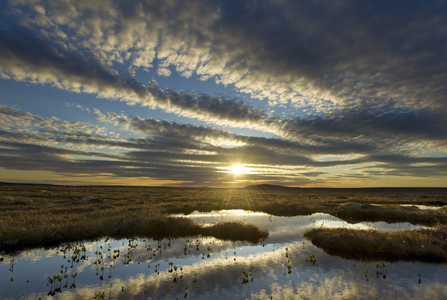Today, The Wildlife Trusts launch a new campaign to raise awareness of hidden peat in retail products. Many consumers are aware of the environmental dangers of using peat – both to wildlife and to the climate – and so they avoid buying peat-based composts. But some people may be inadvertently buying peat-based products without realising that it is often used as a growing medium for houseplants, leafy salads and mushrooms.
The Hidden Peat campaign will help to increase consumer understanding of peat-based products and help more people understand the pressures UK peatlands face, such as those in Somerset which are being dug up for use in horticulture.
In 2022, the UK Government announced that it would ban the sale of bagged peat compost in England by 2024. Progress towards this has stalled and there is currently no legislation in place to achieve the promised ban. It is looking increasingly unlikely that the UK Government will enact a ban before the end of this Parliament.
Many consumers across the UK are now aware that choosing peat-free composts protects precious habitats and have made the switch to alternative growing mediums. Major retailers including the Co-op and B&Q have already phased out sales of bagged peat compost in anticipation of a ban.
The UK Government has committed to bring about an end to all uses of peat in England by 2030 – but again, this will not happen without legislation.

